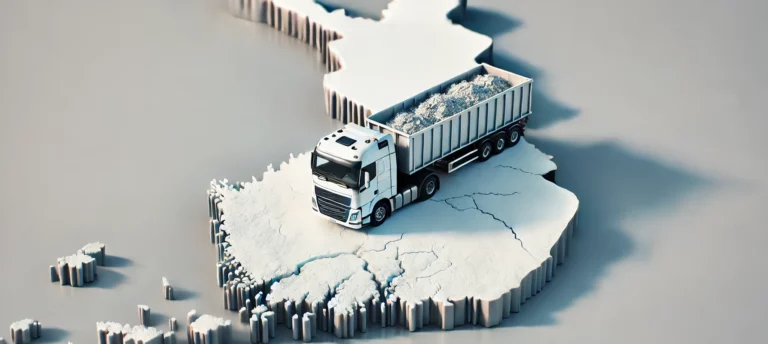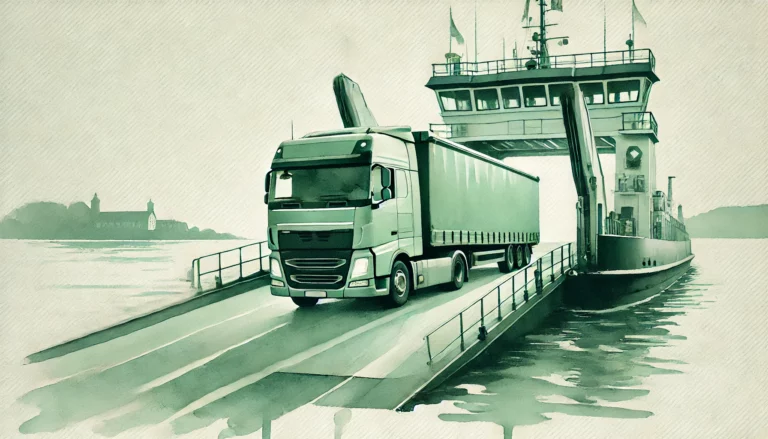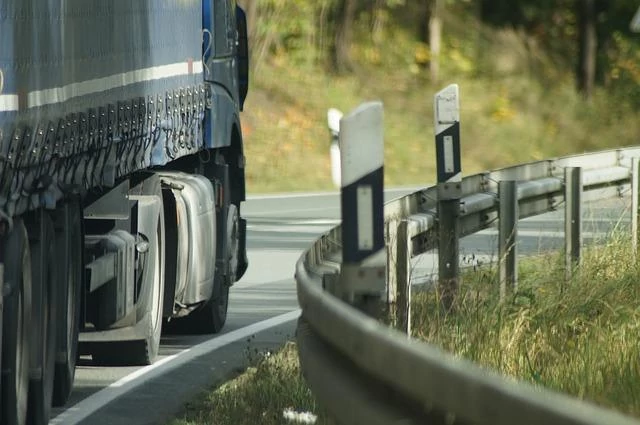Stopping waste shipments - an anti-crisis guide for the carrier

Stopping a waste shipment does not have to end in a penalty or a long shutdown. When it does happen, it is important to remain calm and take three simple steps: verify the documents, ask for explanations and get in touch with the person who will take over the conversation with the services carrying out the inspection. In this guide, we show you what to do on the spot and how to protect yourself for the future.
Stopping waste shipments - why does it happen so often?
Millions of tonnes of waste are shipped in Europe every year, both between EU countries and outside the EU. The larger the scale, the more frequent the inspections - and the greater the risk that one missing document or a minor inaccuracy will cause an interruption in delivery. Data from the EU institutions show that breaches of the rules are detected in a significant proportion of cases. However, this is not always intentional - often it is just a simple error in paperwork or waste classification. The key is to have your paperwork in order and to develop a procedure for behaviour on site. This, in practice, determines whether the transport can continue without major problems.
Waste transport in figures
SCALE:
- 35.1 million tonnes - the estimated weight of waste exported from the EU in 2023.
- 32.1 million tonnes - weight exported from the EU in 2022.
- 8.3 million tonnes - hazardous waste shipped within the EU in 2022.
FREQUENCY OF INFRINGEMENTS INDICATED BY THE INSPECTION:
In the inspection projects (IMPEL/WSIP and EWSR reviews - targeted inspections for increased risk), violations were found in about 20-30% of the inspected consignments. Admittedly, this is only the result of targeted inspections - nevertheless it shows how easy it is to make a mistake if documents and procedures are not perfected.
Do you need document verification before you leave?
Don't risk stopping for an inspection. We will verify the validity of your authorisations and help you obtain any missing permits. Call or write:
e.nadolna@ekologistyka24.pl , +48 881 045 376
j.blazewicz@ekologistyka24.pl , +48 500 867 153
Most common reasons for detention
Make sure you have everything under control
Download our checklist and check that you have taken care of everything before you leave. You will also find information about what should come to your attention during your waste transfer and the contact details of an advisor who will help you in an emergency. It costs nothing and can save you from serious consequences.
What to do step by step when your transport has been stopped
1) Remain calm and establish the basis for detention
The answers to the following questions will be key:
- Who is carrying out the inspection?
- What is the objection to?
- On the basis of which provision is the detention made? Ask for clarification - preferably in writing or in an official note.
2) Check documents on site
Go through the set of documents with the inspector. Highlight what you have and know, and indicate how you will make up the shortfall (if it is a formal error). Ask for the opportunity to consult with an advisor.
3) Call the person who will take over the call
The adviser will more quickly clarify the basis of the dispute and propose a solution (e.g. sending a missing document, correction, clarification).
4) Establish a "line of defence"
If it is a minor formality - make a declaration of completion. When there is an interpretative dispute - ask for time and record your objections for the record.
5) Secure the evidence
Take photos of labels/loads, note names, service numbers, dates, times. Copy everything you sign.
Has your transport been stopped?
Give me a call - I will analyse the documents, speak to the inspector and establish where the problem lies:
p.koszynski@ekologistyka-24.pl
+48 519 516 869
Case study: rapid intervention saved a delivery
One haulier called us during a roadside check in Germany. He reported that BALM (formerly BAG) inspectors had pulled up to the car park where he was pausing as part of a wide-ranging check of the powers of waste carriers from outside Germany. As it turned out, more than half of the drivers were fined, as the inspectors found that the permits they were showing had the wrong reference numbers. On closer inspection, the deliberate falsification of documents by some of the operators came to light.
Our client was quick to point out that his driver did not have a valid waste transport licence in his cab. In less than an hour, we prepared a temporary document for him, confirming that the waste carrier registration procedure had been initiated. When called in for an inspection, the driver showed proof of payment of the administrative fee and the provisional permit issued. He was allowed to continue to the unloading site the same day, and when we mediated with the consignee and explained the reason for the driver's arrival outside the planned unloading window, he waived the late delivery penalty.
Lessons from intervention
- Quick contact with the adviser and conversation on the part of the carrier reduce the risk of a penalty from the consignee.
- Missing one document can bring a whole day's work to a halt - the emergency procedure and template letters shorten the stoppage.
- Proof of the initiation of formalities (payment, confirmation) is often enough to get back on track. In this way, the carrier demonstrates his willingness to make up the shortfall, which is well received by the control authorities.
How do you protect yourself from another inspection?
We will prepare you for the inspection
Not sure what to look out for to make sure your car passes a roadside check? Let me help you figure it out. Get in touch with me:
p.koszynski@ekologistyka-24.pl
+48 519 516 869






